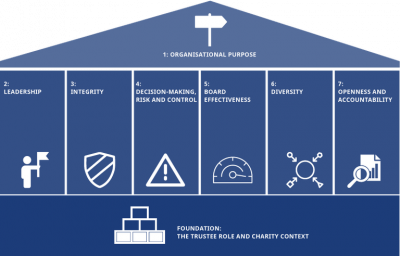Is safeguarding the new governance hazard?

The introduction of the Charity Governance Code (July 2017) was welcomed by the sector and endorsed and supported by the Charity Commission (the ‘Regulator’).
In April 2018 a story broke revealing Save the Children mired in allegations that it had failed to investigate sexual abuse and inappropriate behaviour by staff and was to be formally investigated by the Regulator.
In September 2018 reports emerged that embroiled Oxfam in a scandal that prompted the Regulator to tell the charity to: ‘review its culture, management and governance arrangements in the wake of the reports of the charity’s handling of sexual misconduct claims’.
Both charities suffered intense media coverage and harm to their reputation and finances. The controversy around these charities tainted the whole sector and that was both unfortunate and unfair for those charities that had a clean bill of health. What it brought to attention is the need for all charities to conduct their business in a way that causes no harm to their charity or the sector.
Safeguarding – is it all bad?
The Charity Commission Report ‘Dealing with wrongdoing and harm’ recorded received 2,819 reports of serious incidents (up from 2,181 in 2016-17) – 1580 (55%) were about safeguarding, 291 (10%) about governance. At the time of the report there were 168,010 charities on the Commission’s register. The report however stated that it considered there was under-reporting of serious incidents and in particular safeguarding.
Safeguarding is in the spotlight:
The Charity Commission issued guidance on safeguarding duties for Trustees.
The DFID issued standards for safeguarding in the aid sector.
Funders and Corporate supporters of charities are increasingly concerned about the potential risk to their reputation. The BBC was prominent both as reporter and reported during the Kids Co crisis now under investigation by the Insolvency Service. The Chair of Kids Co, Alan Yentob, a senior exec at the BBC, faces possible disqualification as a Trustee and Director.
This raises the question about the safeguarding of trustees and those supporters of charities – that is often overlooked – unless you were a member of the Kids Co board of trustees.
The Centre for Mental Health published a report on ‘Workplace bullying in charities and the implications for leadership’. The sector has its own safeguarding issues to address.
It is not all bad. However, it is apparent that there is much work needed to improve safeguarding and that responsibility sits with trustees. How do you know if trustees are cognisant of their responsibility? There is no mandatory reporting required of charities, as the Charity Governance Code is voluntary. Should reporting be mandatory for charities to turn the tide on declining public trust and confidence and demonstrate their commitment to the Charity Governance Code ‘Open and Accountable’ principle?
Time for mandatory reporting?
The Charity Commission’s annual report ((January 2019) on its regulatory work reported the CEO Helen Stephenson saying the Commission was working on: “becoming more preventative”, which means “developing the risk-based element to its work so that it can spot potential problems before they occur”.
That is a major task given they regulate 168,010 charities. It raises many questions:
- What risks? If the charity is unaware of its risks then that is a hazard.
- How are they exposed? ‘Decision-making Risk and Control’ is one of the principles of the Charity Governance Code yet there is no mandatory reporting of risks.
- Do all charities experience difficulty with governance in general or just specific aspects governance, e.g. safeguarding, fundraising? How would that be exposed?
- Benchmarking of governance sector-wide is now possible with digital technology if the Commission decided to take the lead. That would inform the Commission to spot potential problems and become more preventative.
The Republic of Ireland Charities Regulator has mandated a standard for governance in Irish charities. All charities in Ireland are expected to comply with the Code in 2020 and report their compliance with the Code in 2021.
Is it time to open the debate on mandatory reporting for UK charities?
The future of the Charity Governance Code
The Charity Governance Code has seven principles that does not currently include safeguarding. The Code’s steering group has announced a light refresh of the Code and is out to consultation until 28th February 2020. Will safeguarding be included? You can comment through a survey when you click here.
The Code is voluntary and there is no data to confirm its adoption. The Chair of the Steering Group is making rallying calls for more adoption and there is good evidence why charities should adopt the Code. Research by RSM in 2019 into the adoption of the Charity Governance Code revealed: "One of the more interesting findings in our research was that those charities that have adopted the latest Charity Governance Code scored higher governance ratings than those that hadn't.”
Summary
Is the evidence gathering for a debate for the introduction of mandatory reporting?
Will the refresh of the Charity Governance Code specifically include safeguarding as one of its principles and what reporting will be required?

